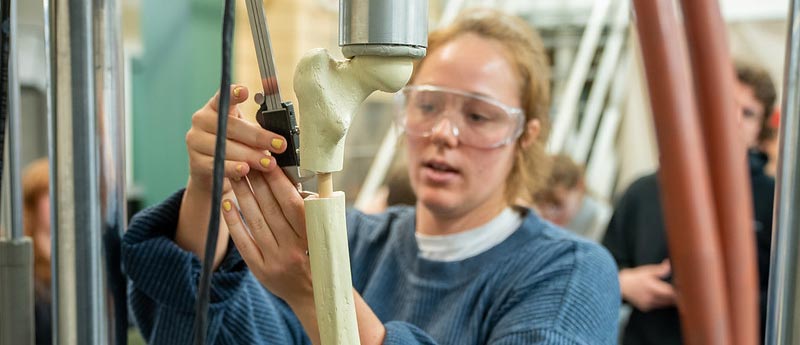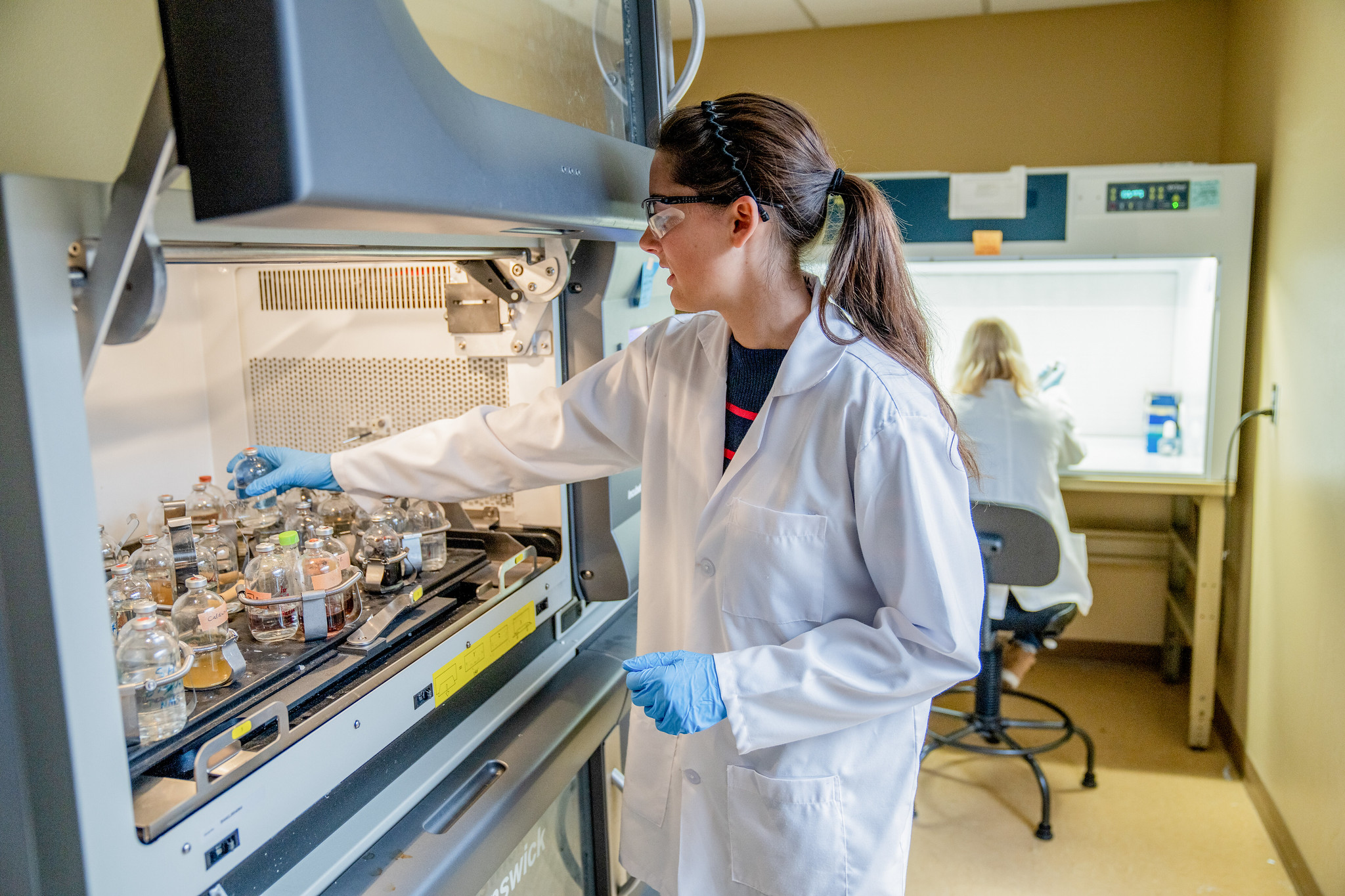Biomedical EngineeringBS

Are you passionate about healthcare and fascinated by how things work?
A degree in biomedical engineering from South Dakota Mines allows you to combine both, placing you at the forefront of innovation where engineering meets medicine. Our program stands out as one of the few in the region, empowering students to apply engineering principles to improve lives through cutting-edge medical technologies.
What is Biomedical Engineering?
Biomedical engineering is the application of engineering concepts to healthcare and medicine, with the goal of designing products that save and enhance lives. Whether you’re creating life-changing devices, improving medical diagnostics, or developing new technologies, this field is filled with opportunities to make an impact.
What Does a Biomedical Engineer Do?
Biomedical engineers are problem-solvers who work on the cutting edge of healthcare technology. Your career path could involve designing medical devices, such as prosthetics or artificial organs, developing advanced software or diagnostic machines, or pioneering innovations in tissue engineering and drug delivery systems. The possibilities are vast, with roles in hospitals, labs, research institutions, and industries focused on health solutions.
Biomedical Engineering Degree @ South Dakota Mines
Video

Program Highlights
Application InstructionsFeatured Courses
- Biomedical Engineering Fluid Mechanics
- Biomedical Technologies
- Anatomy and Physiology
- Introduction to Biomaterials
- Biomedical Signal and Imaging
- Cell and Tissue Engineering
Internships and Co-ops
Nearly 73% of our students graduate with real-world work experience through internships and co-ops, earning an average of $22.62 per hour.
The Biomedical Engineering (BS) program is accredited by the Engineering Accreditation Commission of ABET, https://www.abet.org, under the commission’s General Criteria and Program Criteria for Bioengineering, Biomedical, and Similarly Named Engineering Programs.
Expand your horizons
Course CatalogPotential Employers
Career Examples
- Biomedical Engineering Thermodynamics
- Computational Biomedical Engineering
- Cell Biomechanics
- Biomedical Signal and Imaging
- Cell and Tissue Engineering
Average Starting Salary
$22.62/hourMines helped me prepare by allowing me to develop my problem-solving skills and be in a mindset to come up with solutions.

